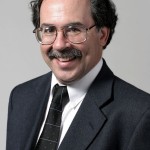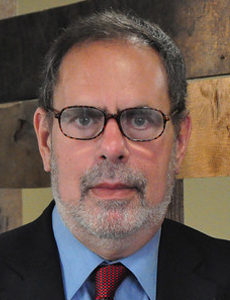2011 Toner Prize Honorable Mention for Bloomberg News
The Stories: In a five-month investigation, a team of Bloomberg News reporters tracked the millions of dollars for political attack ads from outside groups that helped the Republican Party gain control of the U.S. House and enlarge its presence in the Senate in the 2010 elections. Among their findings: “Congressional candidates benefitted by a fourfold increase in spending by independent groups over the last midterm elections in 2006. Many took advantage of the tax laws to keep their donors secret. Spending by such nonprofit organizations that kept their donors hidden increased 25 times over 2006. Most of this money was spent to defeat candidates rather than to elect them. Several Democratic candidates lost their races after being targeted by these groups. Our reporting also discovered that though federal law requires all TV commercials mentioning a federal candidate to be reported to the Federal Election Commission if they air shortly before an election, millions of dollars of ad spending was never reported — and the FEC didn’t do anything about it. We discovered that many of the ads had no basis in fact. Lawmakers were accused of voting on legislation that never came up. And we discovered that federal election law allowed many groups to sidestep disclosure altogether; if they ran ads well before Election Day, they didn’t have to tell anyone how much they spent or who they were targeting. The practices led Senate Finance Committee Chairman Max Baucus to ask the Internal Revenue Service to review the groups’ activities. The bottom line is that as a result of this spending by groups that don’t disclose, Americans know little about who helped elect the current crop of Congress members, and which interests they may be beholden to. Following publication of our findings, the watchdog group Citizens for Responsibility and Ethics in Washington filed complaints with the FEC and IRS against the Commission on Hope, Growth and Opportunity, whose unreported spending provided the lead for the Bloomberg story. And the FEC tried to begin drafting rules to require such groups to disclose their donors, only to be stymied by its three Republican commissioners. As members of Congress run for re-election in 2012, they are already facing a new barrage of attack ads by interest groups opposing them. As part of our coverage, we chronicled lawmakers who barely survived in 2010 and how they immediately increased their fundraising for 2012 in response to the outside advertising.”
The Reporters:
 Jonathan D. Salant: Covers campaign finance and lobbying for Bloomberg News. He joined Bloomberg in 2004 and has been a Washington-based reporter for 25 years, including the first seven with Newhouse News Service as the correspondent for the Syracuse Herald-Journal and The Post-Standard. He was part of a team of Bloomberg reporters, including John Crewdson, Charles Babcock and Alison Fitzgerald, who won the 2011 Everett McKinley Dirksen Award for Distinguished Reporting of Congress for their stories on the secret money spent on the 2010 congressional campaigns. His coverage of health-care lobbying and financial services lobbying was a finalist for the 2010 Raymond Clapper Award, and he also won national awards for his coverage of a lawmaker’s first year in office and a computer-assisted analysis of donations to members of the New York congressional delegation. He holds a B.A. in political science from the State University of New York at Stony Brook and an M.S. in journalism from Columbia University. Salant, 58, is a former president of the National Press Club and lives in Rockville, Md., with his wife Bonnie Cole and their son Isaac.
Jonathan D. Salant: Covers campaign finance and lobbying for Bloomberg News. He joined Bloomberg in 2004 and has been a Washington-based reporter for 25 years, including the first seven with Newhouse News Service as the correspondent for the Syracuse Herald-Journal and The Post-Standard. He was part of a team of Bloomberg reporters, including John Crewdson, Charles Babcock and Alison Fitzgerald, who won the 2011 Everett McKinley Dirksen Award for Distinguished Reporting of Congress for their stories on the secret money spent on the 2010 congressional campaigns. His coverage of health-care lobbying and financial services lobbying was a finalist for the 2010 Raymond Clapper Award, and he also won national awards for his coverage of a lawmaker’s first year in office and a computer-assisted analysis of donations to members of the New York congressional delegation. He holds a B.A. in political science from the State University of New York at Stony Brook and an M.S. in journalism from Columbia University. Salant, 58, is a former president of the National Press Club and lives in Rockville, Md., with his wife Bonnie Cole and their son Isaac.
John Crewdson: recently retired from Bloomberg News. Crewdson worked on Bloomberg projects ranging from campaign finance to the gun lobby in America. Crewdson’s awards include the Pulitzer Prize for national reporting, and the George Polk Award for his 55,000-word Chicago Tribune history of the discovery of the AIDS virus. He is also the recipient of the Sigma Delta Chi bronze medallion, the New York Deadline Club’s Goldberg award, the New York Newspaper Guild’s Page One Award, the Chicago Headline Club’s Peter Lisagor award, and the American Bar Association’s Silver Gavel award. Crewdson began his career at The New York Times, where he worked for 13 years as a Washington reporter and national correspondent before moving to the Chicago Tribune, where he spent 28 years as national editor, metropolitan editor, West Coast bureau chief and, finally, associate Washington editor and senior writer. Crewdson holds an undergraduate degree in economics summa cum laude from Berkeley and studied politics at Queen’s College, Oxford. He and his wife Prudence have two sons and live in Bethesda, Maryland.
 Charles R. Babcock: Is an editor on the projects and investigations team at Bloomberg News. He came to Bloomberg in 2006, after 30 years at The Washington Post, mostly as an investigative reporter and editor. He was a Pulitzer Prize finalist in 1990 for stories about ethics abuses in Congress and a longtime board member of the Reporters Committee for Freedom of the Press. He is a native of Louisville, Ky. He has a B.A. degree from Ohio Wesleyan University and a master’s degree from the Fletcher School of Law and Diplomacy. He served as an Army lieutenant in Vietnam in 1969-70. Babcock and his wife Carolyn Bowers live in Washington, D.C., and have three daughters.
Charles R. Babcock: Is an editor on the projects and investigations team at Bloomberg News. He came to Bloomberg in 2006, after 30 years at The Washington Post, mostly as an investigative reporter and editor. He was a Pulitzer Prize finalist in 1990 for stories about ethics abuses in Congress and a longtime board member of the Reporters Committee for Freedom of the Press. He is a native of Louisville, Ky. He has a B.A. degree from Ohio Wesleyan University and a master’s degree from the Fletcher School of Law and Diplomacy. He served as an Army lieutenant in Vietnam in 1969-70. Babcock and his wife Carolyn Bowers live in Washington, D.C., and have three daughters.
 Alison Fitzgerald: Is a former investigative reporter at Bloomberg News. Fitzgerald had been with Bloomberg since 2000, covering the U.S auto industry, the Federal Reserve, the U.S. Treasury, economics and tax policy. Her coverage of the international food price crisis in 2008 won her the Overseas Press Club’s Malcolm Forbes Award, and her coverage of the financial crisis and ensuing government bailout earned her several honors including being named a finalist for a Gerald R. Loeb award. Fitzgerald started her career at The Philadelphia Inquirer as a reporter covering the New Jersey suburbs and criminal courts. She then moved to The Palm Beach Post where she wrote about coastal development, migrant workers and county government. She spent three years as a reporter and editor at The Associated Press, covering courts and government in Boston and working as editor on the international desk. She is a graduate of Georgetown University and Northwestern University’s Medill School of Journalism Fitzgerald and her husband, Drew Kodjak, have three children and live in Takoma Park, Maryland.
Alison Fitzgerald: Is a former investigative reporter at Bloomberg News. Fitzgerald had been with Bloomberg since 2000, covering the U.S auto industry, the Federal Reserve, the U.S. Treasury, economics and tax policy. Her coverage of the international food price crisis in 2008 won her the Overseas Press Club’s Malcolm Forbes Award, and her coverage of the financial crisis and ensuing government bailout earned her several honors including being named a finalist for a Gerald R. Loeb award. Fitzgerald started her career at The Philadelphia Inquirer as a reporter covering the New Jersey suburbs and criminal courts. She then moved to The Palm Beach Post where she wrote about coastal development, migrant workers and county government. She spent three years as a reporter and editor at The Associated Press, covering courts and government in Boston and working as editor on the international desk. She is a graduate of Georgetown University and Northwestern University’s Medill School of Journalism Fitzgerald and her husband, Drew Kodjak, have three children and live in Takoma Park, Maryland.
-30-
